
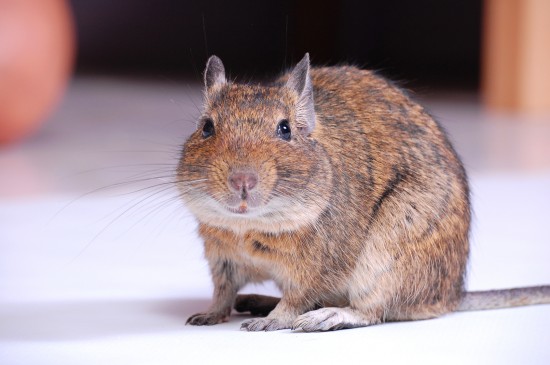
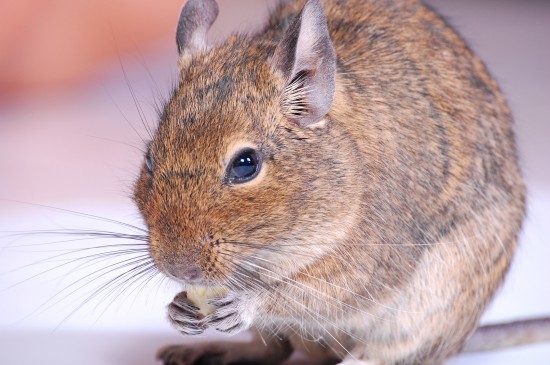
Because degus are not common household pets there is often a misconception that they are hard to look after, or they have special dietary needs. This could not be further from the truth, degus are very easy to care for and feed.
The only special consideration revolves around their susceptibility to health problems related to high sugar foods. Degus are not able to regulate their sugar levels as effectively as other rodents and small animals. But with some care on your part, it’s not hard to make sure they are receiving a healthy balance of nutrients from their food.
The main feed for a degu is a specially formulated dried food mix, these are available from pet stores and online retailers. You can find some degu specific food mixes, but guinea pig and chinchilla mixes are fine too. They contain all the necessary minerals, vitamins, and other nutrients a degu requires as part of a healthy balance.
By using a recommended food mix you greatly reduce the chance of health conditions like diabetes and cataracts. Food specially formulated for degus are low in sugar, and do not contain molasses. Molasses is a food additive used in some pet foods to make it more palatable, it is however very bad for degus. Also keep an eye out for other high-sugar additives like honey, glucose, fructose and syrup, as these are just as bad.
Chinchilla and guinea pig food mixes are suitable as mentioned earlier. However, do not stray away and try other pet foods, rabbit food mixes are particularly harmful for example. Rodent pellets can be added in moderation along with the food mixes to add some variety.
Degus have a digestive capacity of around 85% for dietary protein. Feeding them a diet too rich in protein can cause them to drink an excessive amount of water. This can put a strain on their kidneys, so don’t feed them a lot of foods that you know are high in protein.
Most mammals are equipped to produce vitamin C from dietary intake of galactose and glucose. Humans, some primates, guinea pigs and birds are the exceptions. The exceptions are lacking the enzyme L-gulonolactone oxidise in their liver, and as a result cannot synthesise vitamin C. While degus are very closely related to guinea pigs, research has shown that degus are able to produce their own vitamin C. Therefore they do not rely on it being in their diets, but it is still recommended due to the other health benefits it offers.
An adult degu will eat around 10g of dry food mix a day. You do not need to measure this out as a science, drop in roughly this amount per degu and monitor how long it takes to all disappear. If you have some left the next day then reduce the amount you put in, if it doesn’t seem to be lasting very long you may need to add a little more the next day. You need to be very careful about overfeeding though, obesity is a definite cause of many health problems.
If you leave an excess of hard food in their cage because you see it as an easy way to keep them fed you’ll run into problems. A degu will choose to eat more of what it wants to eat over what is healthy for them.
If you realise you need to make some changes to the diet of a degu you need to implement it slowly. Degus are creatures of habit, and when faced with a dramatic change in anything they can become stressed.
If you are introducing a new feed, slowly introduce it over the period of a week. Start by placing a few pieces in their old food mixes each day, increasing the amount of new food steadily while reducing the old food content until it is completely replaced.
Grass hay (timothy hay for example) should be available at all times. Hay plays an important part in keeping their digestive system and teeth healthy, roughage that is high in fibre is in important part of their diet and wellbeing.
A small amount of alfalfa hay can be added to help give the overall hay a more palatable taste to the degu. Alfalfa hay is more of a treat as it is rich in protein and calcium, so use it in moderation.
Fresh vegetables play an important role in the diet of all herbivores. Hard food and dry mixes are great and are specifically formulated to contain all the nutrients the animal needs, but vegetables provide a different way to deliver these nutrients.
Different vegetables offer different ranges of nutrients and vitamins, and as such you need to give some sparingly. To give you an idea of what vegetables can be fed, and how often, here is a brief breakdown:
Vegetables suitable around once a week:
Vegetables suitable around once a month due to the natural sugar content:
You should have water available at all times. The best way to provide this is via a water bottle attached to their cage, this way they cannot damage or overturn it like they can a bowl. Their natural curiosity will enable them to find the bottle when they need it, so don’t worry about showing a new bottle to them.
Although I have gone into some detail about vitamins, minerals, and nutrients in this article, you do not need to over think or complicate feeding a degu. You will get the bulk of their diet from pre-packed dry foods designed for them, adding pellets and some vegetables will help round off their diet and ensure they are healthy.
They do not eat a lot and it is not expensive feeding degus. It does not need to be time consuming either, you only need to put food in their cage once a day.
 Tackling A Dog That Is Aggressive Towards Children
Tackling A Dog Th
Tackling A Dog That Is Aggressive Towards Children
Tackling A Dog Th
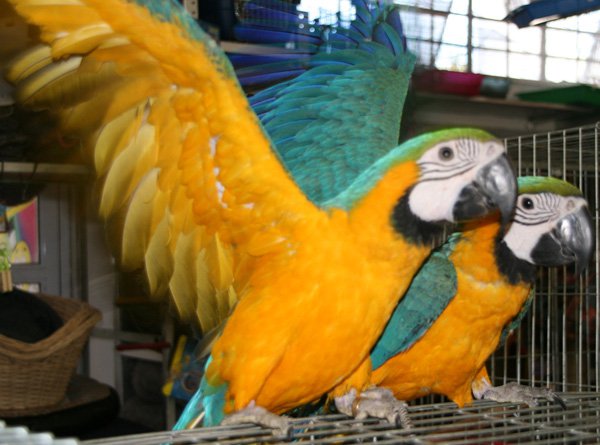 Puppy and Dog Obedience Training
Puppy and Dog Obedience Training
Knowing basic
Puppy and Dog Obedience Training
Puppy and Dog Obedience Training
Knowing basic
 The “puppy Rules Of Twelve”
The “puppy Rules
The “puppy Rules Of Twelve”
The “puppy Rules
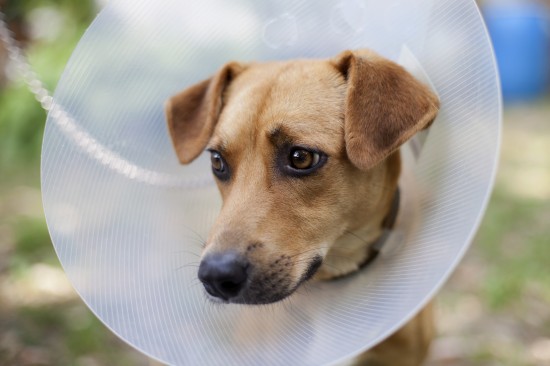 Helping Your Dog To Deal With Wearing A Buster Collar
Helping Your Dog
Helping Your Dog To Deal With Wearing A Buster Collar
Helping Your Dog
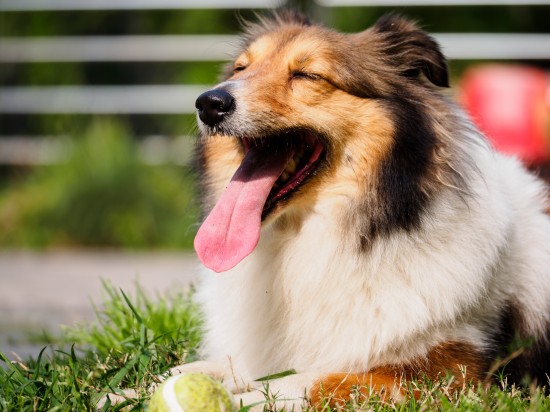 Information About Dogs And Their Mouth Bacteria
Information About
Information About Dogs And Their Mouth Bacteria
Information About
Copyright © 2005-2016 Pet Information All Rights Reserved
Contact us: www162date@outlook.com